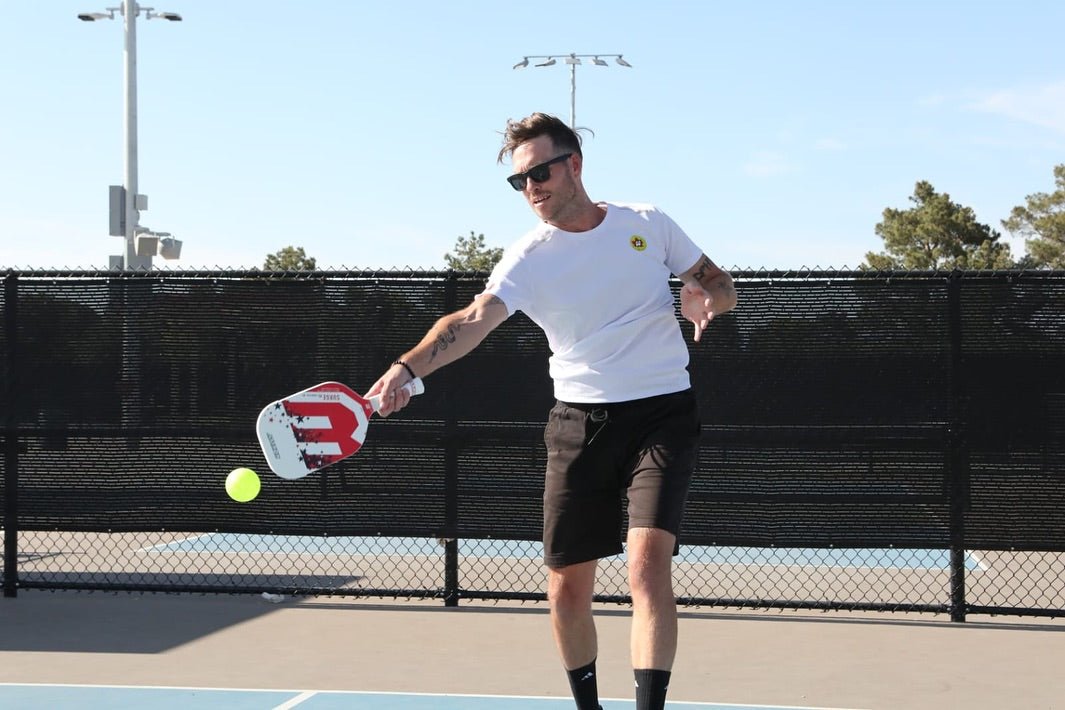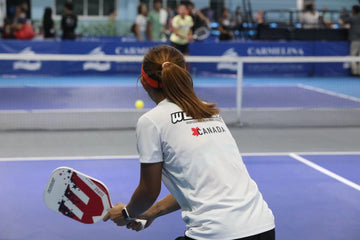Common Mistakes Pickleball Players Make: How to Improve Your Pickleball Skills

Pickleball has surged in popularity across all age groups, becoming one of the fastest-growing sports in the world. As more players join the ranks of this enjoyable game, it's crucial to understand and avoid the common mistakes that can hinder skill development and overall performance on the court.
Introduction
Pickleball combines elements of tennis, badminton, and table tennis, played on a smaller court with a paddle and a wiffle ball. Despite its accessible nature, players often find themselves making avoidable errors that affect their gameplay. This article delves into the typical blunders pickleball enthusiasts make and offers insights on how to rectify them.

Not Using the Correct Equipment
One of the most fundamental yet overlooked aspects of pickleball is equipment selection. The paddle and ball used can significantly impact a player's comfort and performance. Beginners and even intermediate players sometimes fail to match their equipment to their playing style and skill level, resulting in suboptimal gameplay.
Choosing the right paddle involves considering factors like weight, grip size, and material composition. Similarly, using the correct ball type (indoor vs. outdoor) ensures consistent play and reduces the chances of erratic bounces.
Poor Positioning on the Court
Effective court positioning is essential for strategic play in pickleball. Novice players often struggle with understanding where to position themselves during different stages of a point. Incorrect positioning can lead to gaps in coverage, making it easier for opponents to exploit weaknesses and score points.
Understanding the basic zones (forehand, backhand, non-volley zone) and anticipating opponent movements are critical for maintaining control and responding effectively to shots.
Incorrect Grip Techniques
The grip on the paddle significantly influences shot accuracy and power in pickleball. Players must master different grips such as the Eastern, Continental, and Western grips to accommodate various shots like serves, volleys, and smashes. Improper grip technique not only affects shot quality but also increases the risk of injury due to strain on the wrist and forearm.
Lack of Footwork
Agile footwork is the backbone of successful pickleball play. Players who neglect footwork training often find themselves out of position, reaching for shots, or unable to recover quickly. Developing good footwork involves drills that enhance lateral movement, quick pivoting, and efficient court coverage.
Overlooking Strategy and Tactics
Pickleball isn't just about hitting the ball back and forth; it requires thoughtful strategy and tactical decision-making. Players who focus solely on hitting hard shots without considering placement, angles, and game strategy often find themselves at a disadvantage against opponents who employ more strategic play.
Ignoring Fitness and Conditioning
Physical fitness plays a crucial role in pickleball performance. The sport demands quick bursts of movement, agility, and stamina, especially in prolonged matches or competitive settings. Players who neglect physical conditioning may experience fatigue quickly, affecting their ability to maintain peak performance throughout a match.
Not Practicing Enough
Practice is key to improvement in any sport, and pickleball is no exception. Consistent practice sessions allow players to refine their skills, develop muscle memory for various shots, and improve overall court awareness. Effective practice routines should include drills that focus on both technical skills (like serves and volleys) and strategic gameplay scenarios.
Failure to Communicate with Doubles Partner
Pickleball often involves doubles play, where effective communication between partners is essential. Miscommunication regarding shot selection, court coverage, or strategy can lead to errors, confusion, and missed opportunities to capitalize on opponents' weaknesses. Clear and concise communication ensures synergy and coordination between doubles partners.
Getting Distracted Easily
Maintaining focus during a pickleball match is crucial for consistent performance. External distractions such as crowd noise, weather conditions, or personal thoughts can affect a player's concentration and decision-making ability. Techniques like mindfulness, staying present in the moment, and focusing on one point at a time can help players overcome distractions and stay mentally sharp.
Ignoring Rules and Etiquette
Every sport has its rules and etiquette guidelines, and pickleball is no different. Understanding and adhering to rules regarding court boundaries, service faults, and non-volley zone violations ensures fair play and sportsmanship. Ignorance of these rules can lead to penalties, disputes, and a negative experience for both players and spectators.
Rushing Shots
Pickleball rewards patience and precision over haste. Rushing shots without proper setup or timing often results in errors, missed opportunities, and lost points. Players should focus on maintaining composure, waiting for the right moment, and executing shots with controlled power and accuracy.
Not Adapting to Opponent's Play
Successful pickleball players adapt their gameplay based on their opponent's strengths, weaknesses, and strategies. Failing to read and adjust to an opponent's style of play can lead to predictability and vulnerability on the court. Flexibility in tactics and the ability to make on-the-fly adjustments are hallmarks of skilled pickleball players.
Neglecting Warm-Up and Cool-Down
Proper warm-up before a pickleball match prepares the body for physical exertion, reduces the risk of injury, and improves performance. Cooling down after a match helps in muscle recovery and prevents stiffness or soreness. Players who skip warm-up or cool-down routines may experience fatigue, muscle strains, or prolonged recovery times between matches.

Conclusion
In conclusion, while pickleball is a fun and accessible sport for all ages, avoiding common mistakes is crucial for improvement and enjoyment. By focusing on equipment selection, court positioning, grip techniques, footwork, strategy, fitness, practice, communication, concentration, rules, shot selection, adaptability, and warm-up/cool-down routines, players can enhance their skills and elevate their gameplay experience.
FAQs
-
How do I choose the right pickleball paddle?
- Consider factors like weight, grip size, and material composition based on your playing style and skill level.
-
What are some effective pickleball footwork drills?
- Drills focusing on lateral movement, quick pivoting, and efficient court coverage can improve footwork.
-
Why is communication important in doubles pickleball?
- Clear communication with your partner ensures coordinated play and maximizes strategic opportunities.
-
What should I focus on during a pickleball warm-up?
- Warm-ups should include dynamic stretches, light cardio, and practice shots to prepare your body for play.
-
How can I improve my shot selection in pickleball?
- Practice patience, wait for the right opportunities, and focus on shot placement rather than power alone.




